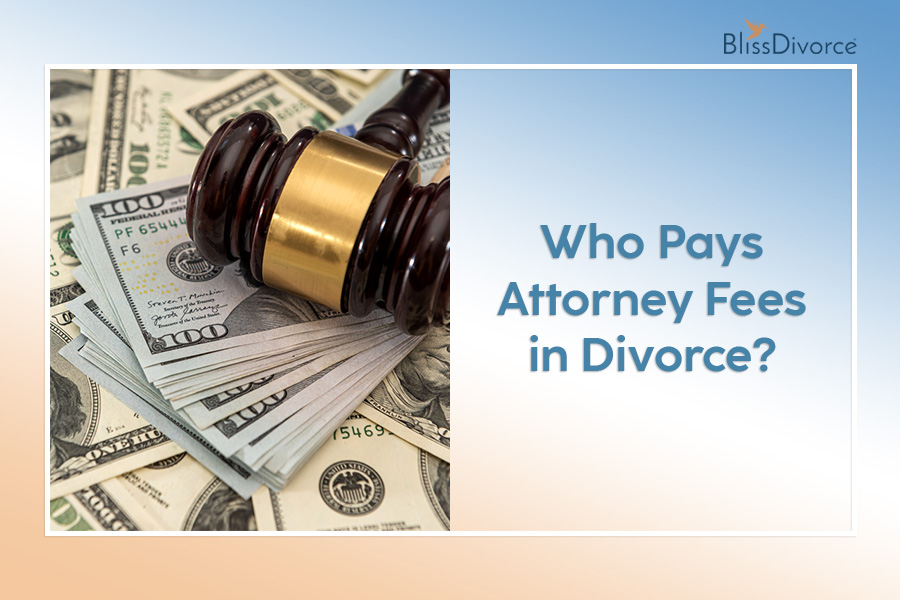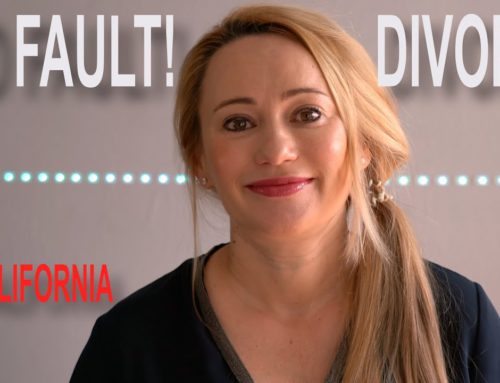Getting divorced in San Francisco can be financially challenging. This is because California is one of the most expensive states regarding divorces and attorneys. But who pays attorney fees in divorce?
In California, there are several options to handle attorney fees. Below, you may read more about them and the legal process for divorce in California.
Who Pays Attorney Fees in Divorce Typically?
Divorcing in California can put significant financial strain on both parties. A significant part of the financial strain is due to the attorney fees. Divorce attorneys in California are known to be expensive, so the spouses may expect to pay a significant sum.
Divorce attorney fees average $12,500 to $15,300 for each spouse in California, and can run a lot higher.
San Francisco divorce attorneys are among the most expensive in the state of California. The attorney fees are in addition to the SF divorce court fees.
In order to protect both parties during divorce proceedings, California law ensures they have access to legal representation. The court takes into consideration each spouse’s financial situation. There are several ways to handle attorney fees.
For example, if both parties are on relatively equal financial footing, each will be responsible for paying for themselves. But if one party is the breadwinner or has significantly more funds than the other, the court may order them to pay the fees for both of them.

Source: Shutterstock.com / Photo Contributor: RomanR
Each party pays their fees
Usually, divorces that take place in the state of California require each party to handle their fees.
There are some exceptions, but both spouses generally cover fees equally. You pay for the forms you submit while your spouse does the same for theirs. Also, the fees your attorney charges are solely your responsibility to handle.
One party covers the fees for both spouses
Another way San Francisco courts handle divorce fees is by ordering only one spouse to pay. The main reason for this is the financial disparity between the spouses. One spouse may have a much higher income than the other, and the court order aims to bridge this difference and make it easier for the spouse with a lower income.
The court first ensures and examines the financial status of both spouses to determine if there’s spouse disparity. If the court comes to a decision that one spouse is dependent on the other, then the other one needs to cover all fees and expenses associated with the divorce.
According to California Family Code section 2030, the court ensures each party has access to legal representation.
Are There Any Alternatives to Paying Attorney Fees Out of Pocket in a Divorce?
Using marital assets to cover attorney fees
If both spouses agree to it, they may use joint assets to pay attorney fees. According to California Family Code Section 2040, this is permissible as long as neither party abuses the joint funds.
The court may also grant non-earning spouses access to joint credit to cover their divorce attorney fees. Joint funds can only be used with the court’s permission and the other spouse’s knowledge.
In order to protect joint assets, the court applies temporary restraining orders (ATROSs). These ATROSs ensure neither party takes or relocates joint funds without the other spouse’s knowledge.
Generally, you can use a joint checking/savings account for your attorney fees. Just remember to keep track of the expenses, as you must account for each one to your spouse.
Arranging payment plans with the attorney
Another alternative way to handle attorney fees is by arranging a payment plan with your divorce attorney. This is a good option when you cannot pay the full fee at once. According to California law, fee agreements exceeding $1,000 must be in writing.
There are several types of fee agreements, such as the following:
- Hourly Fee – This type of fee agreement is among the most expensive ones. The hours may increase, especially for divorce cases where the divorcing couple hasn’t agreed upon anything before the divorce process starts.
- Contingency Fee – With this type of fee agreement, you agree to pay your attorney fees via a percentage of your settlement.
- Retainer – This type of fee agreement may mean several things. First, a retainer fee may be used to guarantee a lawyer’s availability for a case, but the legal work is also charged.
Second, it may also mean that your attorney is “on-call” to handle your case over a period of time. And third, a retainer fee may be seen as a down payment on legal services.
Can the Court Order One Party to Pay the Other’s Attorney Fees in a Divorce?
If one of the spouses cannot pay for the attorney fees, the court may order the other spouse to pay for both of them. It is important to note that this is not done as a punishment for one party. Instead, the purpose is to even out the financial field for both spouses.
The court orders one spouse to cover both attorney fees when significant financial discrepancies exist between the spouses. For example, one spouse may have been the homemaker during the marriage while the other is the breadwinner.
This means that the unemployed spouse is not likely to have the means to pay or afford divorce attorney fees. The judge presiding over your case will consider the following factors before ordering your spouse to pay both fees.
- Your income and needs
- If one spouse has more access to money
- If the other spouse has the means to cover both attorneys’ fees
After considering these factors, the judge may order your spouse to cover all or part of the costs.
What Happens if One Spouse Cannot Afford to Pay Their Attorney Fees in a Divorce?
If one spouse does not have the financial means to cover their legal expenses, the court will order the other spouse to pay. In order to ask the court to make this order, you need to fill out and submit a Request for Order (form FL-300).
With this form, you may tell the court what you want it to order and why it should do it. Afterward, you must fill out the following attachments to inform the court about your financial situation and how much you need for the fees.
- Income and Expense Declaration (form FL-150).
- Request for Attorney’s Fees and Costs Attachment (form FL-319).
- Supporting Declaration for Attorney’s Fees and Costs Attachments (form FL-158).
- Spousal or Partner Support Declaration Attachment (form FL-157).
Alongside these forms, attach documents that support your case. These may include pay stubs, bills, or witness statements. Make two copies of the forms and file them in your local court.

Source: Shutterstock.com / Photo Contributor: J. Frederick
Divorce Cases: Legal Considerations and Precautions
California law states its courts may exercise discretion regarding attorney fees, including increasing or decreasing them to ensure reasonable fee awards. Still, a divorce lawyer in California may charge high fees you cannot afford.
Ensure you talk to several attorneys to compare their fees and choose the best one for you. Legal representation matters in divorces to protect you financially.
If you cannot afford a lawyer, ask the court to order your spouse to pay the fees. If you do not do this and cannot pay the fees, your attorney is likely to drop your case.
Conclusion
Who pays attorney fees in divorce? As you can see, California attorney fees are either covered by both spouses equally, the court orders one to pay both, or you may use joint assets to pay.
Before you decide on a route for your case, ensure that you understand the laws and processes involved in California divorces.




